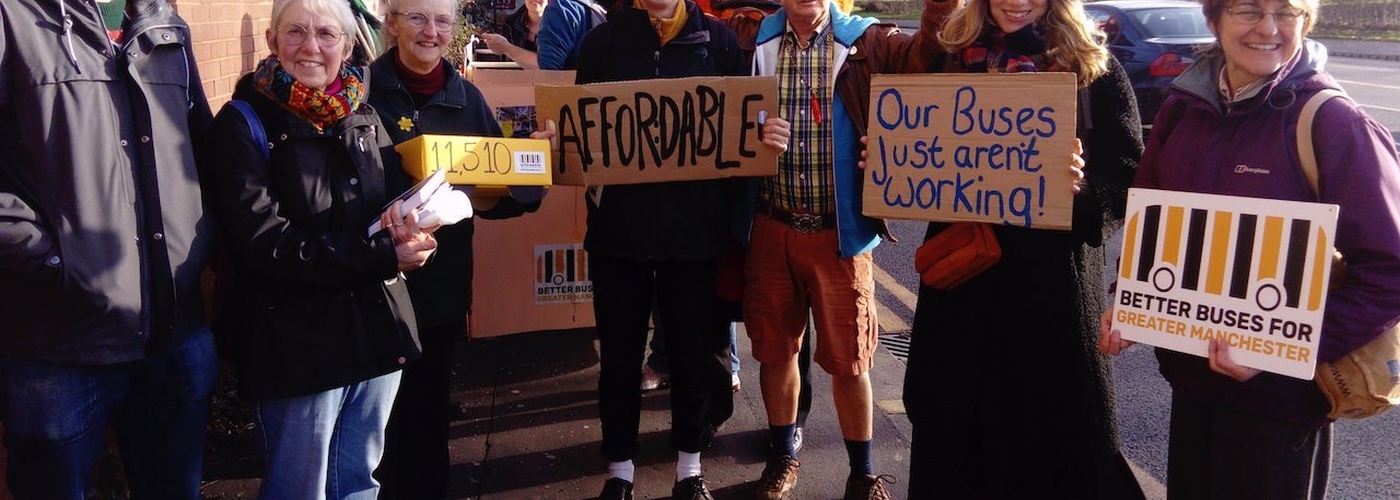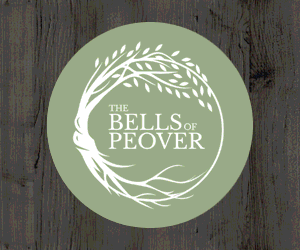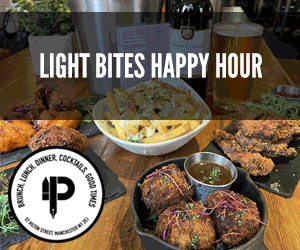Andrea Sandor argues the case for bringing buses back under public control
Manchester’s three month consultation over whether to franchise buses comes to an end tonight at midnight. If you haven’t had your say yet, read on to learn more about the proposed plans and why you should respond ‘yea’ for the franchising scheme before the end of the day.
But first let’s cast our minds back to that fateful year, 1985. Mexico City’s earthquake hit 8.1 on the Richter scale, Reagan and Gorbachev met for the first time, and the British Coal Miners’ strike ended. The remains of the RMS Titanic were discovered, the UK’s first mobile call was made, and Coca Cola released ‘New Coke.’
It’s baffling that taking public transport is more expensive in Manchester than in London
Amidst all that global hubbub, something far duller but still significant was taking place in the UK. Margaret Thatcher introduced her Transport Act,which deregulated and privatised bus services. The idea was to reduce public spending on ‘commercial objects’ and introduce competition that would surely improve services. This was the start of the dream-time when the West truly believed that markets knew best - the fall out from which we’re reeling today.
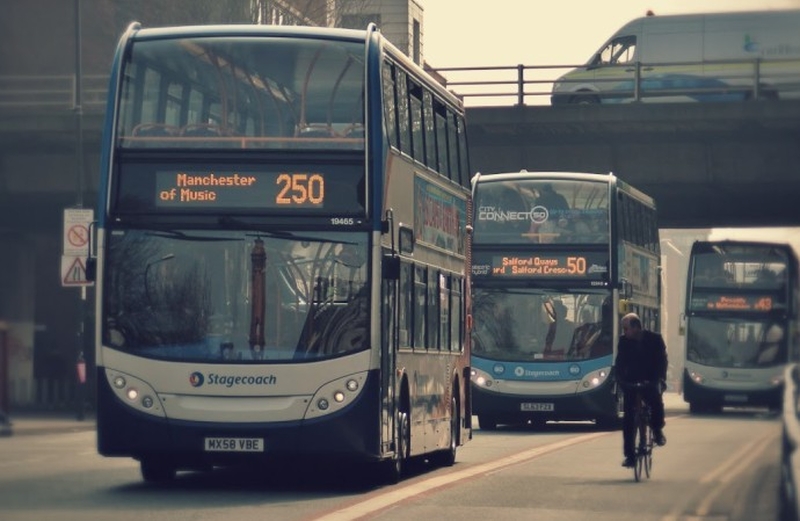
The following year, the Transport Act was passed and buses outside London were deregulated. The reason buses weren’t fully deregulated in London may be because the city’s transport infrastructure required too much public money to run. Instead, buses in London were privatised but continued to be overseen by the city’s local authority. This meant, effectively, the local authority set the fares and routes, and private bus companies could bid for the contracts. Outside London, there was no local authority oversight, meaning the company that won the tender had full control.
The outcome is well known. In 2014, a Guardian article declared 'Bus deregulation outside London has been a failure,' citing an IPPR thinktank report. According to the stats, bus passenger journeys had fallen by 32.5% outside of London while they’d increased by 99% in London. Manchester has fared worse than the average: in 2016, the Guardian reported bus passenger journeys in Manchester had fallen by 40% since deregulation.
It seems local authorities are much better at attracting ‘customers’ than private bus companies. This is for good reason. For one, taking the bus in London is much cheaper than in Manchester with a single fare there costing £1.50 across all city zones. In contrast, a single from Piccadilly Gardens to Rochdale is £5.80 with Stagecoach (it’s £4.60 on the tram).
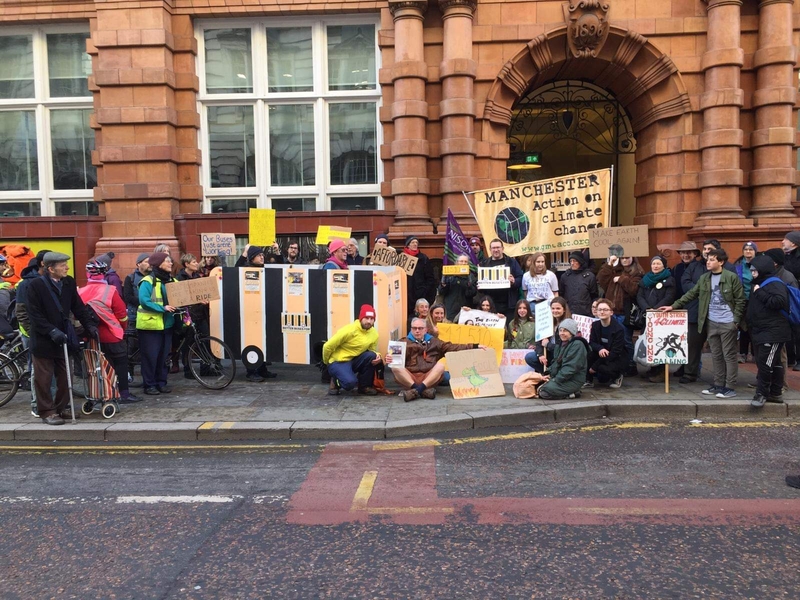
It’s baffling that taking public transport is more expensive in Manchester than in London, where the weekly median income is £143 higher than in the North West.
Another reason why bus companies aren’t good at serving their ‘customers’ is because they aren’t obliged to serve them at all. Over the past four years alone, Greater Manchester has lost 8 million miles of bus routes (11%), according to the BBC shared data unit. The North West has been the hardest hit region. As John Disney, a transport researcher and lecturer at Nottingham Business School, explained to the BBC a few years ago: "Commercial operators have definitely, over the last 10 years, become much more risk-averse and so they are really concentrating on what they consider to be their core routes and are not really bothered about much else."
In other words: if the route isn’t profitable, axe it. Meanwhile, as communities are being cut off without public transport and/or charged silly fares just to get to work or the doctor’s, shareholders from the three top bus companies in the region have taken home on average £18.4 million a year over the past 10 years, according to data from Companies House.
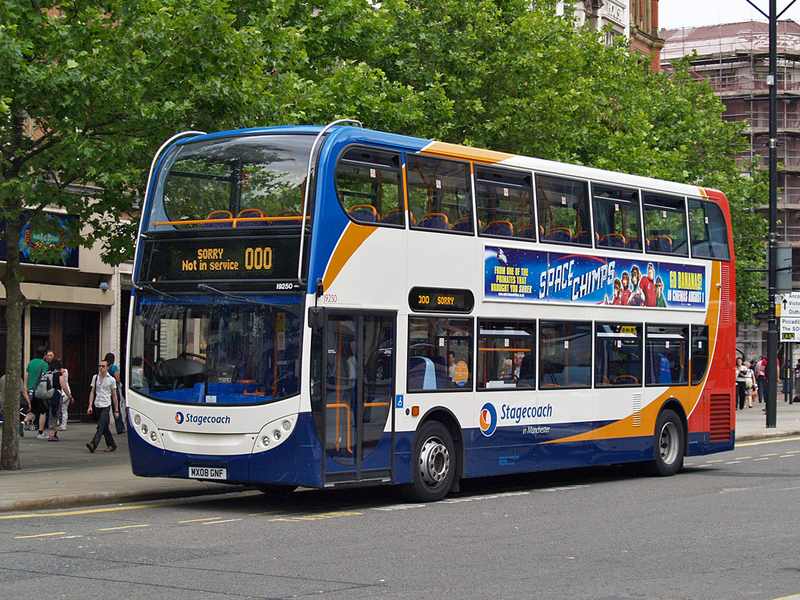
What’s even more galling is that bus companies are already subsidised by the state. According to Transport for Quality of Life (TfQL), a community interest company, public money accounts for over 40% of bus operators revenue. This includes funding socially necessary services, ‘unprofitable’ routes, and the Bus Services Operator’s grant, not to mention the public money spent on things like painting bus lanes and bus shelters.
TfQL concludes: “Despite such a large contribution from the public purse, there is a lack of effective public control over the way in which this money is spent.”
Although the overwhelming majority of public transport journeys are made by bus (79%), we have a wild west of sorts in the North West with around 22 bus companies running 440 services and 140 different types of tickets - all this without any oversight.
This lack of regulation also led to the great ‘Bus Wars’ around the turn of the century. In 2000 Stagecoach was caught out for employing conductors to usher passengers away from competitors. In 2006/7, Stagecoach and UK North went head to head over route 192 and Wilmslow Road bus corridor that caused traffic mayhem.
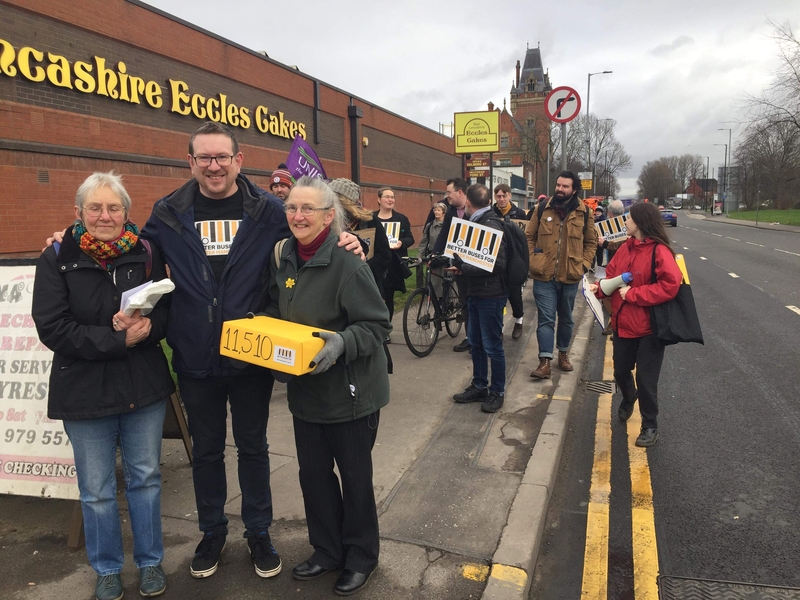
Now, 30 years after deregulation, Andy Burnham has launched the first public consultation on franchising the buses. This would bring the bus service under the control of the GM Combined Authority (GMCA), which would be responsible for setting routes, timetables, fares, and working conditions for employees. Profits would be reinvested into the bus service, rather than into shareholder bank accounts. Burnham has promised to deliver an integrated ‘oyster card’ style public transport service, with tickets and passes that can be used across bus operators and other public transport services. GMCA will bring back routes and create new ones, transforming the way people get around.
As you can expect, the bus companies aren’t happy about this. Many have banded together under the One Bus umbrella group, putting forward proposals to work together and provide a more integrated bus network while still retaining full control of the service. They argue their plans will be faster to implement and cheaper, saying taxpayers won’t be happy with the hike to council tax they claim can be expected with franchising.
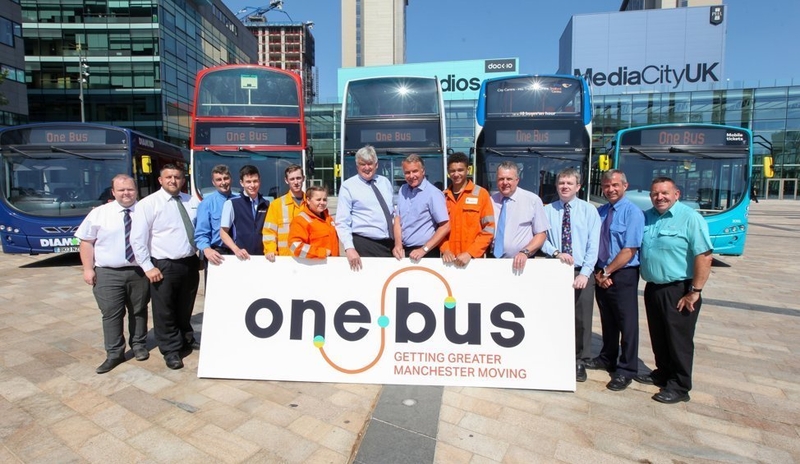
The franchising scheme is estimated to cost £135.5m, paid for through a variety of funding sources, including £78m from the Mayoral ‘earn back’ funds provided from Central Government as part of devolution. The estimated cost for the average taxpayer will be £14 a month for four years. The Better Buses campaign group, supporting the scheme, say this is “a price worth paying. These costs will mean we can get a better bus network, run for the public over shareholders, with much better value for the public money we currently give to buses.”
Buses aren’t exactly glamorous, but they’re essential for creating a better, more equal, and greener society. They connect communities, workplaces and health centres, and are integral to reducing emissions and improving air quality. Making buses a preferred travel option over driving will get cars off the roads, which account for a significant proportion of greenhouse gas emissions. This is also why cars should be levied within the Clean Air Zone and not buses, but I’ve already covered that here.
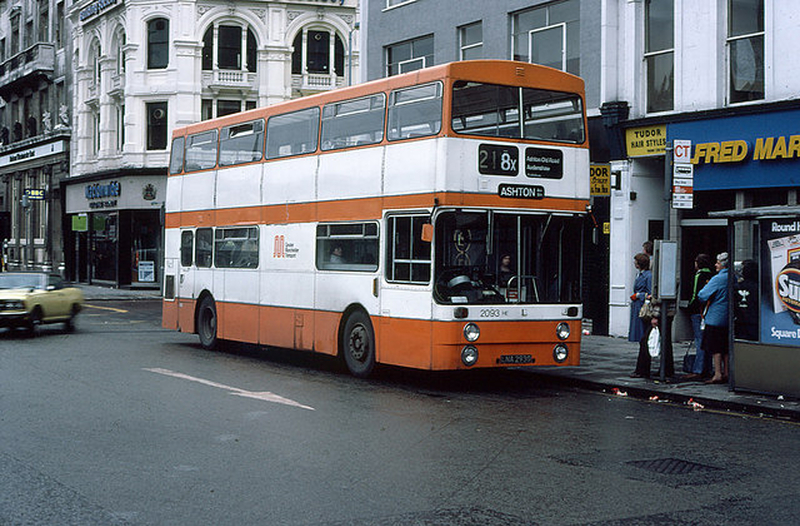
Let’s finish where we started, back when deregulation took place. Why did London never fully deregulate its buses? In fact, there were intentions to do so, with the Conservatives planning to announce it in the 1993 Queen’s Speech. But Ministers got twitchy.
They feared publish backlash over what would likely have meant the end of the Travel Card, which passengers could use on rail, Tube, and bus journeys. In other words, the franchised system was too good, too popular. It never happened, and Londoners continue to reap the benefits of a far superior public transport system.
How to respond to the consultation
The quickest option if you agree with franchising: If you think buses should be franchised, consider answering the consultation with the help of Better Buses, who’ve filled out a template for you. All you have to do is take a few minutes to read through it, sign, and send. Done. Fill out the consultation form from scratch: You can choose between the short version (nine questions) or long version (48 questions). Most questions ask you to comment on specific elements in the 140 page Consultation Document, which you will need to look up. You can also choose not to comment and move onto the next question. Learn more about the case for franchising from Better Buses. Join 11,000+ who’ve signed their petition in support of franchising. Learn more about the case for an alternative partnership model from One Bus. |





